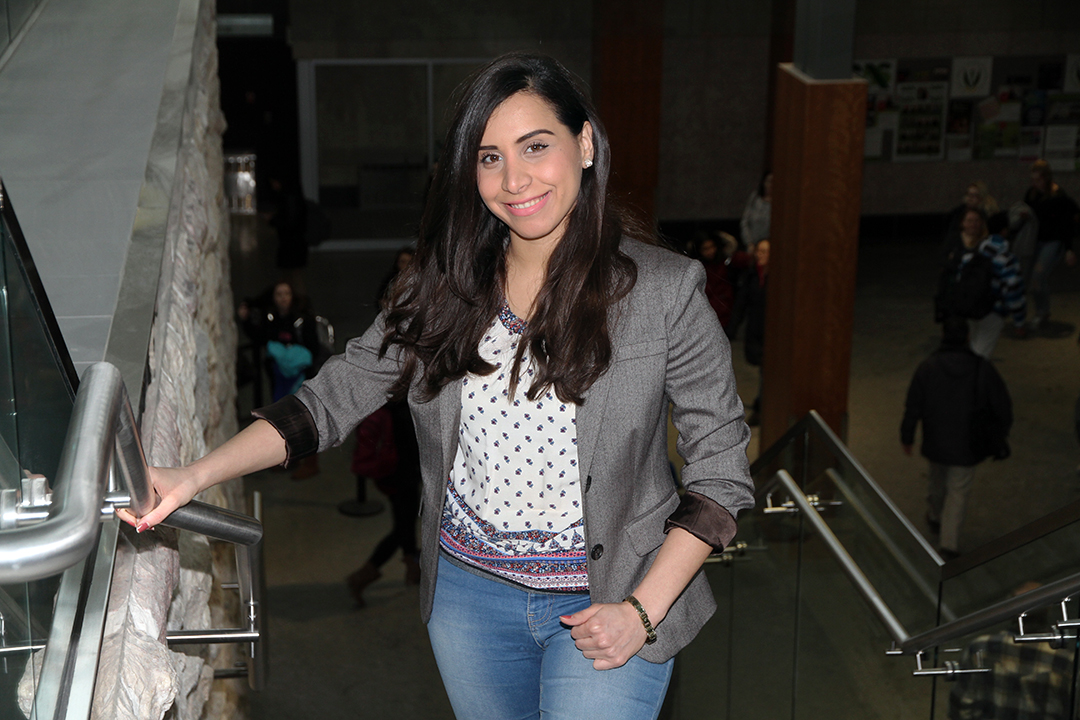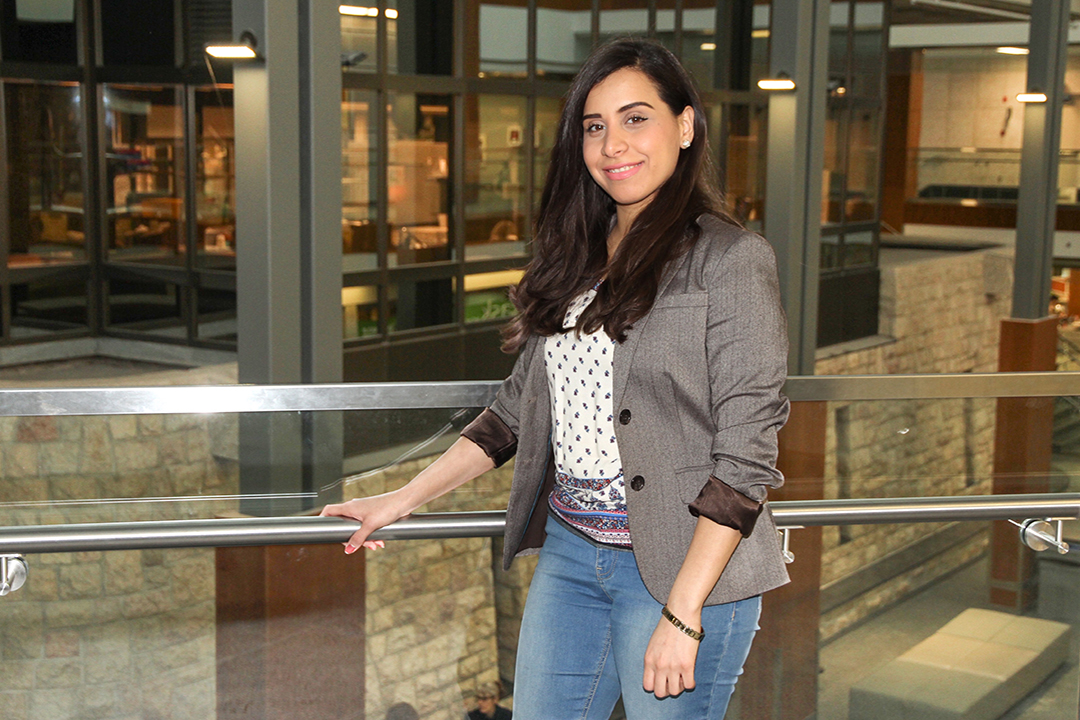
U of S pharmacy PhD student’s gene therapy research earning awards and accolades
Mays Al-Dulaymi was working as a pharmacist overseas in Jordan when she soon realized that she wanted to do more to help patients.
By James Shewaga“I was really touched by the personal stories of patients struggling with cancer specifically and moved by their frustration with the available treatment options,” said Al-Dulaymi, who also spent time volunteering at a cancer treatment centre while finishing her pharmacy degree in the Jordanian capital of Amman. “As an energetic fresh graduate witnessing the financial burden of chemotherapy on both patients as well as the health-care system, I wanted to learn more about alternative treatment options and explore innovative approaches to tackle the problem.”
Al-Dulaymi quickly set her sights on returning to school to conduct research abroad, a plan that came to fruition when she met a visiting lecturer from the University of Toronto (U of T) at a conference in Jordan. Leaving family and friends behind, Al-Dulaymi headed to U of T for a one-year stint working as a research assistant before applying and being accepted to do graduate studies in the College of Pharmacy and Nutrition at the University of Saskatchewan.
“Growing up, I always loved the idea of going to Canada, but when I was in Iraq or Jordan, I didn’t really know about the University of Saskatchewan,” she said. “But then when I came to Toronto, an opportunity presented itself at the U of S and I had heard good things about the university that it was a research-intensive university with state-of the-art facilities such as the synchrotron and the core mass spectrometry facility, which I utilized in my project.”
That project has already drawn the attention of the research community. While there is plenty of work still ahead, Al-Dulaymi’s gene therapy research is proving promising, with her method significantly improving upon current lipid-based gene delivery systems, with a potential to treat genetic disorders such as skin cancer.
“My research is in trying to find a better way to deliver genetic materials, it’s as simple as that,” said Al-Dulaymi, whose work is supervised by pharmacy professors Ildiko Badea and Anas El-Aneed. “Compared to the previous generation of compounds, the compound that I tested is now eight times better than previous generations. So that’s good, that’s really good. With research, things could take a long time before it reaches the market, but what we are seeing is really promising.”
It was the promise of a new research opportunity that first drew Al-Dulaymi to the U of S in September of 2012, and she soon felt right at home on campus and in the community. Adjusting to the weather, however, was a work in progress.
“Honestly, the biggest adjustment was the weather,” she said, with a smile. “I grew up in Iraq, so going from plus 40 to minus 40 is quite the change. But other than that, I didn’t face that much difficulty. People were really welcoming and helpful in Saskatoon. There is a real sense of community here.”
On campus, Al-Dulaymi quickly established herself as one of the college’s brightest young researchers by earning the major Apotex Graduate Award in Pharmacy in 2013, one of more than a dozen scholarships and awards that she has earned during her time at the U of S.
“When I first came here, I didn’t have any (graduate scholarships), I just took the risk to come here,” she said. “And then I proved myself.”
Indeed. This past year, Al-Dulaymi drew national and international attention for her gene delivery research, earning the prestigious Gattefossé Canada/CSPS Award in Lipid-Based Drug Delivery at the annual Canadian Society for Pharmaceutical Sciences conference in Montreal in May. Al-Dulaymi then garnered global recognition by being awarded the American Association of Pharmaceutical Scientists (AAPS) Graduate Student Research Award in Drug Discovery and Development at the annual meeting in San Diego in November.
“Mays is an outstanding graduate student leader in our college,” said Kishor Wasan, dean of the College of Pharmacy and Nutrition. “Not only has she won national and international awards—the first graduate student at the U of S to win an American Association of Pharmaceutical Scientists award—but she was also instrumental in setting up our AAPS graduate student chapter, which has received international acclaim.”

Al-Dulaymi has also become a leader in the campus community, serving as a representative on University Council’s Research, Scholarly and Artistic Work Committee, as well as the Pharmacy and Nutrition graduate affairs committee, while also co-founding the U of S Arab Students Association that raised $1,300 for the Saskatoon Lighthouse Assisted Living facility during Ramadan last spring.
Meanwhile, Al-Dulaymi’s findings on improving treatment for skin cancer through gene therapy have already been published in a peer-reviewed journal as she finalizes her PhD thesis this year.
“I am interested in all genetic disorders, but skin cancer is my main focus since it affects the lives of so many people, imposing a huge burden on the health-care system worldwide,” said Al-Dulaymi, who has also served as a teaching assistant and lecturer at the U of S since 2014. “Melanoma is just one type of cancer, but according to Canadian Cancer Statistics, in 2017 there were more than one thousand deaths from this cancer. So, my gene delivery approach eventually targets melanoma, trying to find better treatment options.”
As she prepares to graduate, the 29-year-old Al-Dulaymi would like to apply for citizenship and remain in Canada to continue her research to help improve the country’s health-care system.
“I would like to stay and continue my work here,” she said. “I was fortunate enough to receive several scholarships during my studies that were made possible by the taxpayer money. So, I would like to give back to Canada.”
